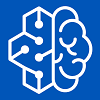| Kurzus | Szemeszter |
|---|---|
| Smart City Laboratory (2016 - 2019) | 2015/2016 2. félév (tavasz) |
The assignment of students to groups and the schedule of the exercises for different groups has been finalized.
The first class of the subject was held on February 13, 2020 at 14.15 in room IB. 211 for the English-speaking students. There were no exercises on this date, only announcement and the creation of groups. For the Hungarian students the first class was held on February 11, 2020 at 10.15 in room IB. 211.
The instruction happens in the form of 4-hour long laboratory exercises. During the semester each student has to perform out 6 exercises. Students work on the exercises in pairs according to the schedule based on the registration made at the start of the semester. Students have to be prepared themselves for the exercises with the help of the tutorial available in electronic or printed format. Preparedness will be checked with a test in the first ten minutes of the exercise. Student has to repeat the exercise if he/she fails or misses in 2 or more questions from the 5.
During the exercise the measurement tasks signed as mandatory in the measurement instructions should be performed out. The results of the measurement tasks should be included to a report – template is available in electronic format. A student group may prepare a joint report. Also optional measurement tasks can be done in order to receive better mark for the exercise.
At the of the exercise teacher give a mark for the exercise for each student and certify with his signature that students completed the exercise.
- Introduction to the simulation of intelligent transport systems
- Programming of microcontroller moduls, using IDE. Information retrieving from sensors. Microcontroller networks.
- Wireless communication between sensors. Data sending to IoT-cloud. Data query to
- Retrieving and processing car sensor data using OBD2 Bluetooth adapter.
- Augmented reality apllications, virtual guide.
- Gesture control
| Kurzus | Szemeszter |
|---|---|
| Smart City Laboratory (2016 - 2019) | 2015/2016 2. félév (tavasz) |

